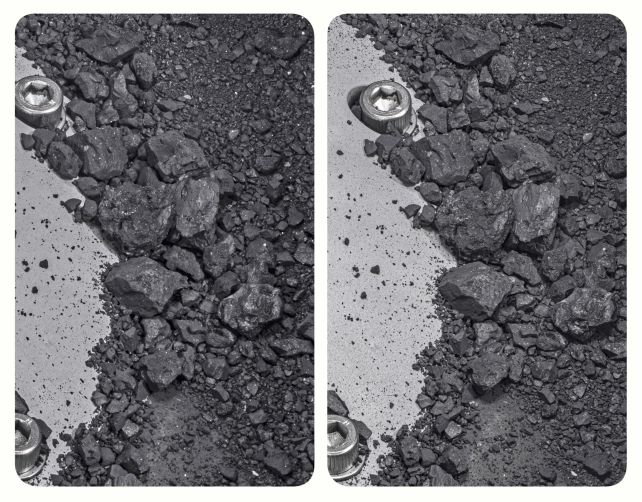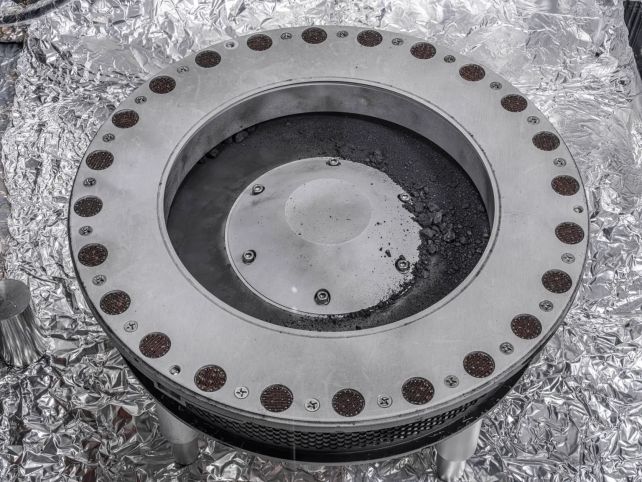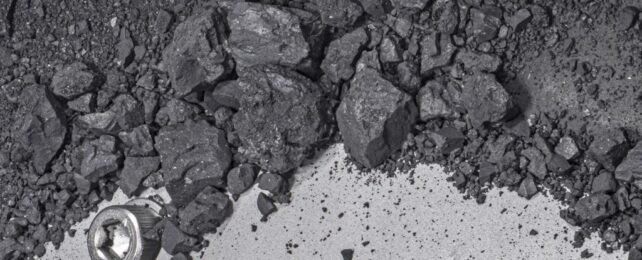NASA is in a bit of a pickle with its container of dirt from asteroid Bennu, delivered to Earth in September after an epic seven-year mission.
They know there's a nice, juicy haul of asteroid in there – but they are having trouble getting the Touch-and-Go Sample Acquisition Mechanism, or TAGSAM, container open. It's just sealed too well.
The problem is that the TAGSAM needs to be opened in a special glovebox designed to minimize Earth contamination. Scientists want to study the sample in as pristine a state as can be managed; to that end, all extraction procedures need to take place in a sealed clean box under an active flow of nitrogen that scientists can access via attached gloves.

The TAGSAM is the head of the collection arm that reached out and grabbed a sample of dirt from the surface of asteroid Bennu back in 2020. The TAGSAM head was then sealed in a canister that the OSIRIS-REx spacecraft yeeted at Earth on its way to its next observation target.
That canister has been opened, and a bunch of asteroid dirt has been collected from outside the TAGSAM. That's good news.
But the TAGSAM head was sealed with 35 fasteners – and two of those fasteners can't be removed with the tools currently approved for use in the glovebox. Sure, they could take the TAGSAM head out of the glovebox, but that would open the sample up to significant levels of contamination.
The sample will be opened; but it's going to take some crafty maneuvering. Any tools must fit inside the glovebox, not compromise the integrity of the sample, and maintain the clean room standards.
"The team," NASA's Erin Morton writes in a blog post, "has been working to develop and implement new approaches to extract the material inside the head, while continuing to keep the sample safe and pristine."

And there's more good news, too. The team was hoping to snare at least 60 grams (2.1 ounces) of Bennu dust with the TAGSAM. By carefully scoping out material from the travel canister and around the outside of the TAGSAM, NASA's OSIRIS-REx team has managed to collect 70.3 grams (2.48 ounces) of asteroid Bennu material.
Inside the container is even more dirt, up to an estimated 250 grams (8.8 ounces), which means the science opportunities are going to be wonderful.
It's going to take a few weeks to figure out a solution. While the science team works on this, the TAGSAM has been popped back into the transfer container, sealed with an O-ring, and sealed with a teflon bag filled with nitrogen, to keep it clean and uncontaminated.
And, while we wait to see what's inside the box, there's that 70.3 grams of asteroid to start sciencing. OSIRIS-REx launched on its mission all the way back in 2016. We can wait a few more weeks to see the sparkling black dirt it brought back to us.
